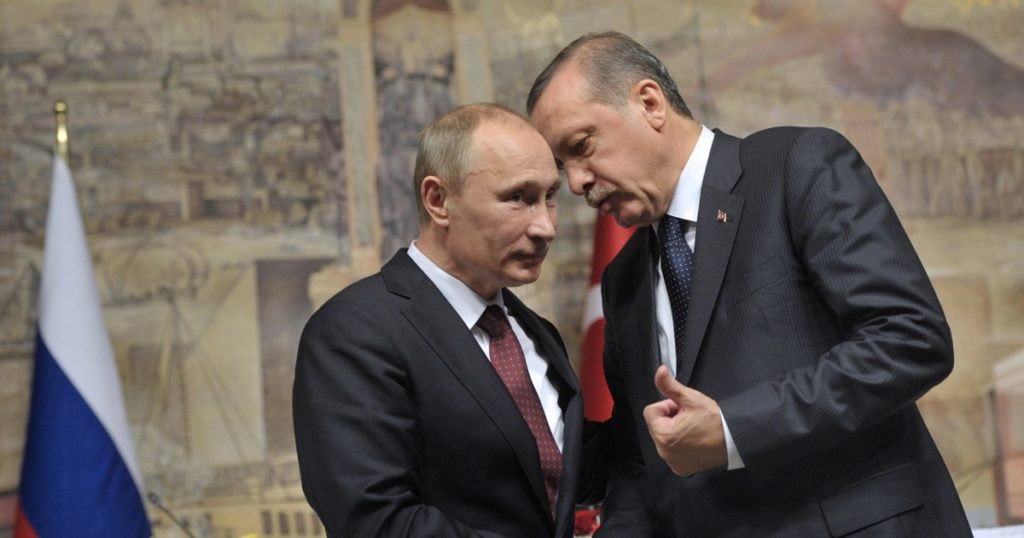Senate Democrats running away from Harris in ‘blue wall’ states
Democrats running for the Senate in “blue wall” states that will be critical to determining the outcome of the 2024 election are running away from Vice President Kamala Harris, signaling that they are hoping to win over some of former President Trump's voters to keep their seats. And Democratic candidates in those states have been careful about...

Democrats running for the Senate in “blue wall” states that will be critical to determining the outcome of the 2024 election are running away from Vice President Kamala Harris, signaling that they are hoping to win over some of former President Trump's voters to keep their seats.
And Democratic candidates in those states have been careful about criticizing Trump during the high-stakes debates. They have focused on policy and their own records without taking many — or any — shots against the Republican nominee.
Pennsylvania Sen. Bob Casey (D-Pa.) has even embraced Trump’s tariff policies. His campaign launched an ad last week that described him as “independent” and touted how he “bucked” the Biden administration to protect fracking and “sided with Trump to end NAFTA.”
“There’s no party affiliation in Casey ads. I don’t recall seeing any that say ‘Democrat’ or anything like that. He’s running as an incumbent on his own record,” said Berwood Yost, the director of the Center for Public Opinion Research at Franklin & Marshall College.
“He’s trying to distance himself a little bit from an administration that is viewed negatively by the most part. He doesn’t want to be tied to that either through Biden or Harris,” he said.
Yost said Casey has dabbled in some of the populist messaging that is Trump’s forte to drive a wedge between working-class, blue-collar voters and his opponent, David McCormick, the former CEO of Bridgewater, one of the country’s biggest hedge funds.
“If you look at some of the messaging that Casey has put forward, he’s tried to run some populist messaging against McCormick. He’s tied McCormick very closely to the leadership of that hedge fund and tying him China,” he said.
Taking a page from Trump’s playbook, Casey harped on China repeatedly during his debate against McCormick, hammering home the point that McCormick’s hedge fund invested in the Chinese defense industry.
The strategy makes sense in a state where Trump is outpolling the Republican Senate candidate.
Internal polling from the Senate Leadership Fund, a super PAC aligned with Senate Republican Leader Mitch McConnell (R-Ky.), last week showed Casey leading McCormick by 2 points, 48 percent to 46 percent, while Trump trailed Harris by only 1 point, 48 percent to 49 percent in Pennsylvania.
The nonpartisan Cook Political Report on Monday shifted the Pennsylvania Senate race from “lean Democrat” to a “toss up,” reflecting the fact that Casey’s lead in the polls is eroding as Trump gains on Harris in the battleground state.
In Wisconsin, endangered Sen. Tammy Baldwin (D-Wis.) ignored President Biden and Harris, and made only a passing reference to Trump, in her one and only debate appearance Friday.
Her opponent, businessman Eric Hovde, meanwhile, frantically tried to connect the incumbent Democratic senator to the Biden-Harris administration — a strategy that Republicans have tried to employ in Pennsylvania and Michigan, as well.
But Baldwin has focused on the issues in her race, hammering Hovde for supporting tax cuts for “the rich,” accusing him of not supporting government negotiations with pharmaceutical companies to lower drug prices, and highlighting his years spent as a real estate mogul and banker in California.
Baldwin has gone to the old Democratic playbook of accusing her Republican opponent of favoring an austerity plan that would cut Social Security and of putting women’s health in danger by opposing abortion rights.
And while she talked some about Democrats’ efforts to pass legislation to negotiate lower prices for some prescription drugs and to address water pollution by PFAS, so-called “forever chemicals,” in a bipartisan infrastructure bill, she was careful not to embrace the Biden-Harris administration.
In a similar move to Casey’s attempt to ingratiate himself with working-class voters, Baldwin nine months ago launched an ad that highlighted her bill signed by Trump to require that domestic infrastructure project use American and not Chinese steel.
“Tammy Baldwin got President Trump to sign her Made in America bill, then she got President Biden to make it permanent,” said the narrators in the ad, which featured men in hardhats talking to the senator.
Her campaign relaunched the ad on television last week.
Baldwin has also taken a more populist stance on tariffs. In May, she called on the Biden administration to keep in place the Section 301 tariffs that Trump imposed on Chinese imports in 2018.
The National Republican Senatorial Committee (NRSC) on Monday called out Casey and Baldwin for trying to cozy up to Trump after clashing with him repeatedly in Washington.
“These Senate Democrats all voted to impeach President Trump twice, so it is surprising that they are now running ads praising his work as President. Disingenuousness aside, these are the type of ads you run if you think your nominee for president is going to lose,” said NRSC Communications Director Mike Berg.
Andrew Mamo, a spokesperson for the Baldwin campaign, pushed back on the notion that there's anything disingenuous about Baldwin working with the Trump administration to protect American jobs in 2018.
The aide noted that Baldwin is working with Trump's running mate, Sen. JD Vance (R-Ohio), and senior GOP Sen. Chuck Grassley (R-Iowa), on legislation.
"Right now, she is working with Republican Vice Presidential nominee JD Vance on a bill that would help our Made in America economy and Republican Senator Chuck Grassley to continue cracking down on foreign ownership of U.S. farmland," Mamo told The Hill.
Hovde tried to score points at Friday’s debate by accusing Baldwin of voting with Biden “95.5 percent of the time with President Biden.”
His campaign has run ads showing footage of Baldwin greeting Harris warmly on an airport tarmac and has tried to link the senator to the Biden administration’s immigration policies.
Baldwin insisted that she “fights for Wisconsin and only Wisconsin.”
“I’ll work with Republicans or Democrats, Republican administrations or Democratic administrations, to get the job done for Wisconsin. But I’ll also stand up to them if necessary,” she declared.
Harris was in Wisconsin on Thursday, campaigning with former Rep. Liz Cheney (R-Wyo.), making stops in Milwaukee, La Crosse and Green Bay. Baldwin, however, did not campaign with her party’s nominee for president.
On Tuesday, Baldwin will attend campaign events with Harris’s running mate, Minnesota Gov. Tim Walz, and former President Barack Obama. And she participated in Harris’s first campaign rally in Milwaukee after becoming the Democratic Party’s likely nominee in July.
In Michigan, Democratic Senate candidate Elissa Slotkin has sounded like a Republican at times, talking about her home on a “dirt road” where no electric vehicle would dare go. She has flashed Trumpian rhetoric about how Japan and South Korea “ate our lunch” in the 1980s by being a step ahead of U.S. automakers in promoting fuel-efficient vehicles.
Slotkin warned donors in a video call earlier this month that Harris was struggling against Trump in Michigan.
“I’m not feeling my best right now about where we are on Kamala in a place like Michigan right now. We have her underwater in our polling,” Slotkin told supporters in a clip viewed by The Hill.
David Dulio, a political science professor at Oakland University outside of Detroit, said Slotkin is cautiously keeping her distance from the Biden-Harris administration’s record.
“Slotkin isn’t talking about Biden simply because some of the issues where voters are judging performance are not in the Democrats' favor,” he said, alluding to voters’ dissatisfaction over the economy, inflation, and mass migration at the U.S.-Mexico border.
“Slotkin is somebody who touts her bipartisan work across the aisle proclivities,” he added.
She’s also soft-pedaling attacks on Trump in a state where he has many supporters.
Slotkin, who represents Michigan’s moderate 7th Congressional District in the House, didn’t mention Trump at her last debate with her Republican opponent, former Michigan Rep. Mike Rogers, until the end of the hour, when she tagged Rogers for sitting by idly while Trump spreads “misinformation and disinformation.”
Rogers repeatedly accused Slotkin of voting “100 percent” with Biden and Harris.
The outcome of the presidential race heavily determined the outcome of Senate races in 2016 and 2020, the last two times President Trump was on the ballot.
Earlier this year, polls consistently showed Democratic candidates in Michigan, Pennsylvania and Wisconsin outperforming Biden, and later Harris — something that was also true in Republican-leaning Montana and Ohio.
But the separation between Democratic candidates and the Harris in these battlegrounds are starting to narrow as Election Day approaches.
The Cook Political Report earlier this month shifted the Wisconsin Senate races from lean-Democrat to “toss up.”



